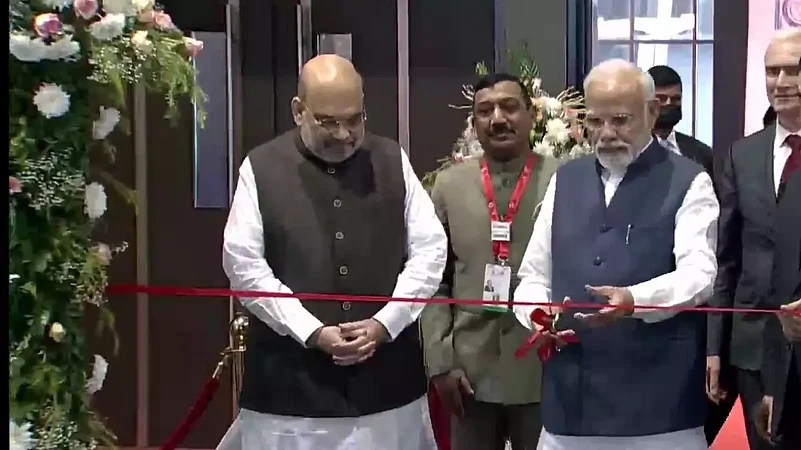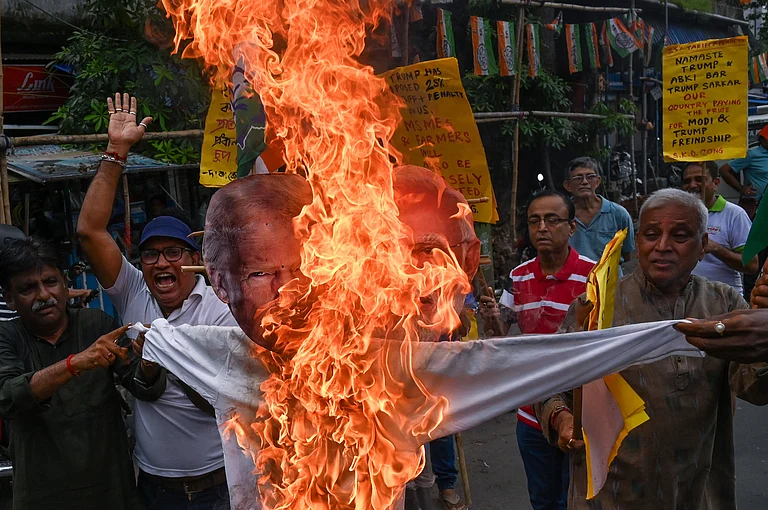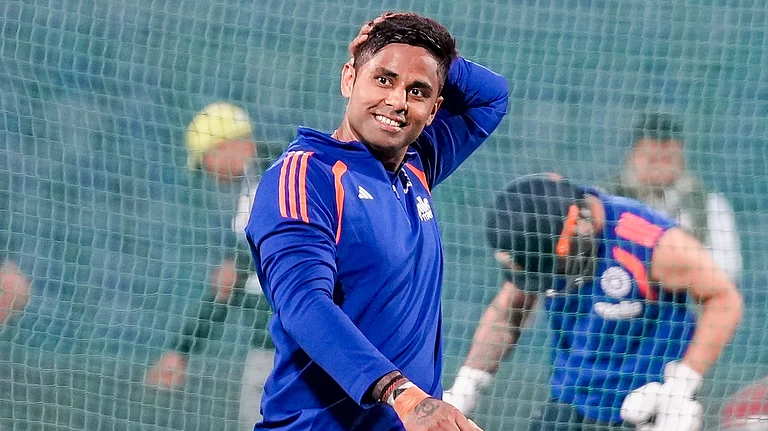Echoing his earlier position on the global cooperation among the countries to eliminate the threats of terrorism, Prime Minister Narendra Modi yesterday said, “forces of good cooperate, the forces of crime cannot operate.” The Prime Minister was addressing the inaugural programme of 90th general assembly of Interpol at Pragati Maidan in New Delhi. India is hosting the assembly meet after 25 years.
Addressing the global delegates who comprised ministers, police chiefs of countries, heads of national central bureaus and senior police officers from 195 member countries, PM Modi said that the major threats of today’s time lies in terrorism, corruption, drug trafficking, poaching and organised crime.
Batting for the global cooperation, he added, “The pace of change of these dangers is faster than earlier. When threats are global, the response cannot be just local! It is high time that the world comes together to defeat these threats.”
Welcomed by Home Minister Amit Shah, Interpol President Ahmed Naser Al Raisi and Secretary General Jurgen Stock, Modi also released a commemorative postage stamp and a Rs. 100 coin to mark the 90th General Assembly. Notably, the delegation included a team from Pakistan led by Federal Investigation Agency (FIA) Director General Mohsin Butt.
Referring to the longstanding stance of India against terrorism, Modi said, “Long before the world woke up to it, we knew the price of safety and security. Thousands of our people made the ultimate sacrifice in this fight.”
“Such crimes against people in one place are crimes against everyone, crimes against humanity. Further, these not only harm our present but also impact our future generations. Police and law enforcement agencies need to devise procedures and protocols to increase cooperation. Interpol can help by speeding up Red Corner Notices for fugitive offenders,” he added.
India has 780 active Red Notices as of now, of which 205 are related to criminals wanted by the Central Bureau of Investigation (CBI).
He also took a dig at the cybercrime and said, “At the click of a button, an attack can be executed or systems can be brought to their knees. Each nation is working on strategies against them. But what we do within our borders is no longer enough. There is a need to further develop international strategies.”
What did the Interpol President say?
Interpol President Ahmed Naser Al-Raisi while addressing the officials gave a call for equal treatment of the countries. Referring to the broadness of the organisation he said, “As the world's largest policing organization, it is the job of Interpol to make sure that all countries are supported. No member country is too big or too small. We must all be equally represented.”
“Through a neutral and transparent Interpol, we will strengthen our unity and build trust. We are 195 members strong. Representing nearly every country on the planet. Our officers and our NCBs are the reason for successful operations,” he added.
The president of Interpol also called for diversity among the workforces and said “Let us formalize this. Further, I pledge that we will always put safety and security first.”
Pointing out that Interpol is going to celebrate its centenary in coming year he noted, “Next year, we will be celebrating our centenary. Let us take action and ensure that we will celebrate another 100 years. Cyber threats, cross-border conflicts, global warming. Imagine a world without Interpol. It would be impossible for countries to keep up with these challenges on their own.”
What are the Objectives of 90th Interpol General Assembly
Attended by 720 delegates from all the member countries the Interpol General Assembly will launch the first ever Interpol Global Crime Trend report, which draws on data and information from across the member countries to identify current and emerging threats worldwide.
The reports of the organisation says that the financial and cyber-crimes have emerged as the major crime threats of particular concern in the world.
Focusing on the increasing Child Sexual abuse cases, it says, “To address these threats, resolutions to strengthen the organisation's collaborative response to disrupting financial crime and corruption, and encouraging greater use of Interpol's International Child Sexual Exploitation database to identify and rescue victims of abuse are on the agenda.”
The major resolution that will be voted by Interpol delegates this time is on the use of Interpol's I-Familia database. The first-of-its-kind I-Familia is a global database that uses the DNA of relatives for kinship matching to identify missing persons or unidentified human remains around the world.
What is Interpol and What does it Do?
Founded in 1923 in Vienna, Austria, Interpol has been the most active international police body with 195 member countries. The main objective of the organisation as per their website is “to help police in all of them to work together to make the world a safer place.”
For fulfilling this purpose they share and access data on crimes and criminals and offer a range of technical and operational support.
Headquartered in Lyon, and a global innovation centre in Singapore, Interpol has several satellite offices across the countries. In each country the General Secretariat of Interpol is connected through National Central Bureau a body that is run by National Police forces and lies under the respective Ministry.
In General Assembly all of the delegates of the countries come together to take further decisions and further the objectives.
The different police forces of the countries are connected through a communications system called I-24/7. Countries use this secure network to contact each other, and the General Secretariat.
The General Secretariat offers different sorts of expertise and services to the member countries. They have 19 police databases with information on crimes and criminals (from names and fingerprints to stolen passports), accessible in real-time to countries. They also provide investigative support for forensics, analysis, and assistance in locating fugitives around the world.
This general assembly of Interpol is significant for India as it coincides with the 75th year of India’s independence. The proposal in this regard was conveyed by Home Minister Amit Shah to Interpol Secretary General Jurgen Stock during his visit to India in 2019. The proposal was put to vote in the last General Assembly which was accepted with an overwhelming majority.
The general assembly will go on up to October 21.


























